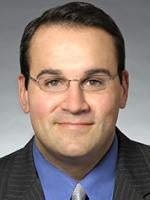On May 22, the United States Supreme Court handed down an important unanimous decision regarding venue in patent cases, reversing a nearly 30-year-old Federal Circuit precedent and limiting "residence" for domestic corporations to the company's state of incorporation. See TC Heartland LLC v. Kraft Foods Group Brands LLC, 581 U.S. ___ (May 22, 2017) ("Slip Op."). This opinion is likely to move lawsuits out of patent litigation hotbeds like the Eastern District of Texas and could result in a major uptick in cases in the District of Delaware (and possibly the Northern District of California for tech patents).
Under the patent venue statute, 28 USC § 1400(b), "[a]ny civil action for patent infringement may be brought in the judicial district where the defendant resides, or where the defendant has committed acts of infringement and has a regular and established place of business." The US Code also contains a broader venue statute, 28 USC §1391, which now states "[e]xcept as otherwise provided by law" and "[f]or all venue purposes," a corporation "shall be deemed to reside, if a defendant, in any judicial district in which such defendant is subject to the court's personal jurisdiction with respect to the civil action in question." §§ 1391(a),(c). In a 1957 decision, the Supreme Court addressed how Section 1400(b) and an earlier version of §1391 interact and concluded that, for purposes of §1400(b), a domestic corporation "resides" only in its state of incorporation. See Fourco Glass Co. v. Transmirra Producta Corp., 353 U.S. 222, 226 (1957).
In TC Heartland, the issue was whether the amended definition in §1391 supplants the definition announced in Fourco. The Federal Circuit denied a writ of mandamus, concluding that the amendments had effectively amended §1400(b), that §1391(c) (as amended) supplied the definition of "resides" under §1400(b), and that venue was co-extensive with personal jurisdiction. See In re TC Heartland LLC, 821 F.3d 1338, 1341-43 (Fed. Cir. 2016). In rejecting the Federal Circuit's position, the Supreme Court held that the Fourco holding still applies to patent venue because the amendments to §1391 did not modify the meaning of §1400(b), as there was no indication that Congress intended to alter the meaning of §1400(b) as interpreted in Fourco. Slip Op. at 2-10. Thus, as applied to US corporations, "reside[nce]" in §1400(b) refers only to its state of incorporation. Id. at 10.
The impact of this Supreme Court decision on venue and forum shopping is yet to be seen. First, this decision is limited to domestic corporations, and the Supreme Court explicitly stated it was not deciding this issue as it related to foreign corporations (see Slip Op. at 7, n.2) or US or foreign unincorporated entities (see Slip Op. at 2, n.1). Second, and perhaps more importantly, while this decision clearly limits the "residence" prong of §1400(b) for US corporations, it does not affect the second prong of § 1400(b), where venue is proper "where the defendant has committed acts of infringement and has a regular and established place of business." The accused infringer in TC Heartland was not registered to conduct business in Delaware and had no meaningful local presence there, but did ship the allegedly infringing products into Delaware. Slip Op. at 2. Thus, it would likely not meet the second prong because of the lack of "meaningful local presence" in Delaware. However, what constitutes "a regular and established place of business" was not addressed in this decision and will likely be developed at the lower courts.
In light of this decision, both patent owners and alleged or possible infringers at all stages of patent litigation should reassess whether venue is proper. For example, both patentees and alleged infringers should look at where the defendant is incorporated and has "regular and established" places of business. If the defendant is neither incorporated nor conducts regular and established business in the district that the lawsuit was brought, a motion to transfer venue may be desirable. Also, patentees considering bringing a lawsuit should consider these factors when choosing its forum, so that it does not spend unnecessary time and money on opposing venue transfer motions or from starting a litigation in one venue only to have it transferred in the future.




 />i
/>i

